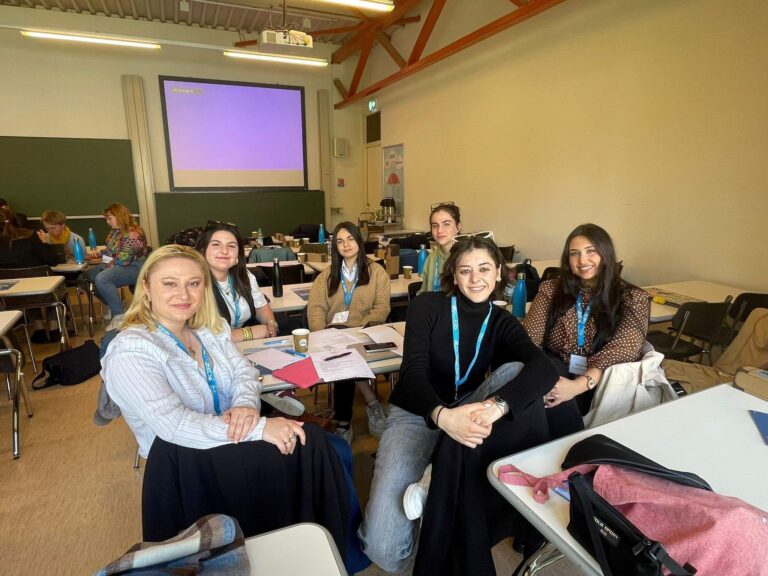Empowering Student Voices to Shape Texas Education Policy
In an unprecedented effort to incorporate student perspectives into educational governance, a newly formed council comprised entirely of high school students will now provide direct guidance to the Texas State Board of Education. This initiative, recently featured in the Houston Chronicle, seeks to embed authentic student experiences and insights into the policymaking process, ensuring that decisions better align with the realities faced by learners across the state. By institutionalizing student participation, the board aims to craft more responsive and inclusive education policies.
The council’s members have expressed enthusiasm about addressing pressing topics such as curriculum modernization, mental health accessibility, and closing the digital divide. Their involvement promises to challenge conventional policy frameworks by introducing contemporary viewpoints that reflect the dynamic needs of today’s student population.
Student Council Priorities for an Inclusive and Modern Education
During their inaugural session, the student council identified several key focus areas to guide their advocacy efforts:
- Diverse and Inclusive Curriculum: Advocating for educational content that honors a wide range of cultural backgrounds and historical narratives.
- Comprehensive Mental Health Services: Expanding statewide access to counseling and wellness programs tailored to student needs.
- Bridging the Technology Gap: Ensuring equitable access to digital tools and internet connectivity, particularly in underserved communities.
- Environmental Literacy: Promoting sustainability education to prepare students for global ecological challenges.
These recommendations will be submitted through quarterly reports, fostering ongoing collaboration between students and policymakers. This marks a pioneering approach to embedding student input systematically within state-level education reform.
Advancing Equity and Access in Underserved Texas Schools
The student-led council is championing targeted strategies to reduce educational disparities in economically disadvantaged areas. Their agenda centers on equity and inclusion, emphasizing the necessity of addressing resource imbalances and promoting culturally responsive teaching methods. By focusing on these areas, the council aims to narrow achievement gaps and cultivate supportive environments for students from historically marginalized groups.
Highlighted proposals include:
- Enhanced Financial Support: Allocating increased funding to improve facilities and learning materials in low-income districts.
- Cultural Competency Training: Requiring educators and administrators to participate in ongoing diversity and inclusion professional development.
- Expanded Student Support Services: Increasing availability of mental health counseling and academic guidance tailored to underserved populations.
- Strengthening Community Partnerships: Building robust collaborations among schools, families, and local organizations to support holistic student growth.
| Initiative | Area of Focus | Anticipated Impact |
|---|---|---|
| Equitable Funding Model | Resource Allocation | Minimize infrastructure and material disparities |
| Mandatory Diversity Training | Educator Development | Improve cultural responsiveness in classrooms |
| Expanded Counseling Access | Student Wellbeing | Enhance mental health support systems |
| Community Engagement Programs | Family & Community Involvement | Boost parental and local organization participation |
Student-Driven Efforts to Strengthen Mental Health Support in Schools
Responding to the escalating mental health challenges among youth, the student council is prioritizing enhanced wellness resources within public education. Representing a diverse array of Texas high schools, the council amplifies the voices of students who navigate the education system daily. Their advocacy centers on expanding access to licensed counselors, integrating mental health education into standard curricula, and fostering peer-led support networks to reduce stigma.
Key strategies proposed include:
- Compulsory Mental Health Training: Equipping teachers and staff with skills to identify and assist students facing mental health issues.
- Increased Counselor Staffing: Striving to meet or surpass the recommended counselor-to-student ratios nationwide by deploying more licensed professionals in schools.
- Peer Support Initiatives: Launching programs that encourage students to support one another in a safe, stigma-free environment.
| Proposal | Projected Benefit | Implementation Timeline |
|---|---|---|
| Integrate Mental Health Curriculum | Boost awareness and early intervention | By 2025‚Äď2026 school year |
| Increase Counselor-to-Student Ratio | Lower stress and absenteeism rates | Within 2 years |
| Establish Peer Support Networks | Foster inclusive student communities | Pilot programs starting 2024 |
Embracing Technology and Career Preparation for Future Readiness
The student council is also advocating for a strategic emphasis on integrating advanced educational technologies and strengthening career readiness programs. Recognizing the rapid evolution of the job market, they stress the importance of embedding digital literacy and practical technical skills into everyday learning. Their vision includes comprehensive professional development for educators to effectively utilize technology, ensuring students graduate with competencies aligned to 21st-century workforce demands.
Beyond technology, the council highlights the value of experiential learning through expanded internship opportunities, industry partnerships, and mentorship programs. These initiatives aim to bridge academic knowledge with real-world applications, preparing students to transition confidently into higher education and careers.
Conclusion: Student Council Shaping the Future of Texas Education
As this innovative student-led council embarks on its mission, educators, policymakers, and communities across Texas are keenly observing its impact on the State Board of Education’s decisions. By embedding student perspectives at the heart of policy development, this initiative represents a transformative step toward more inclusive and effective education governance. The council’s ongoing contributions are poised to influence Texas’s educational landscape profoundly, underscoring the vital role of student engagement in shaping public policy.




